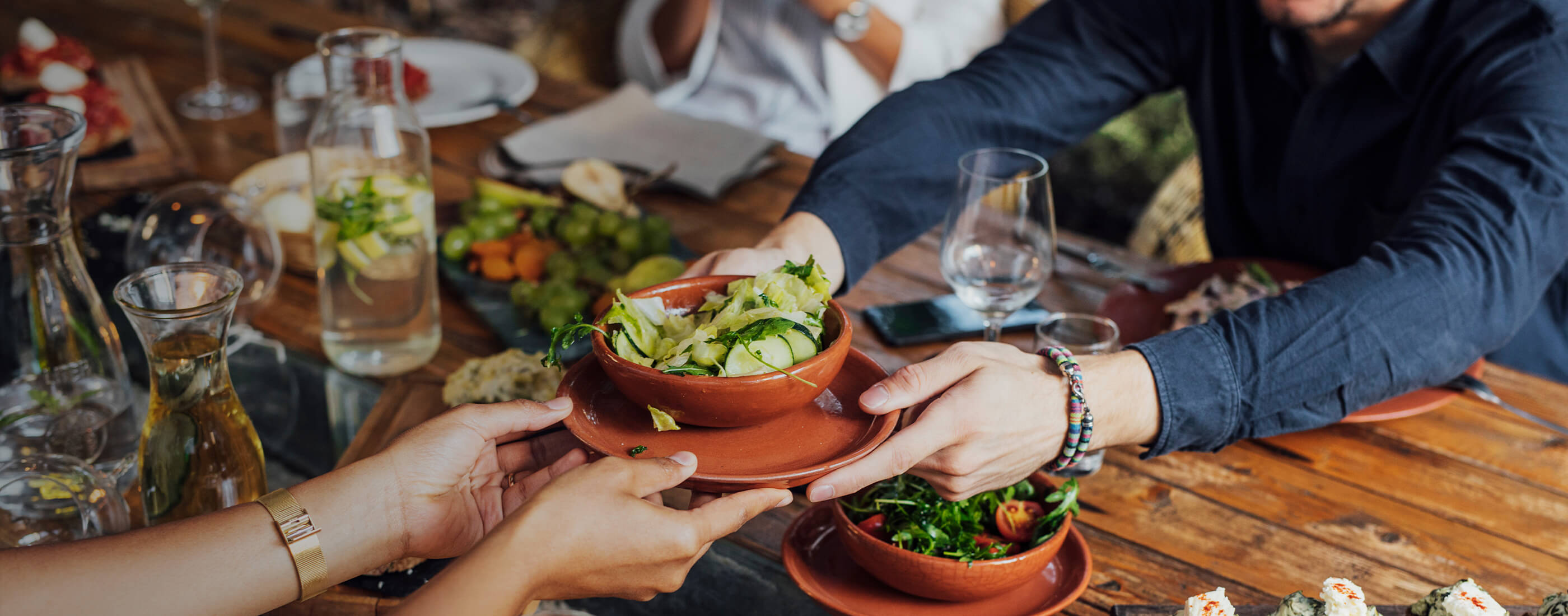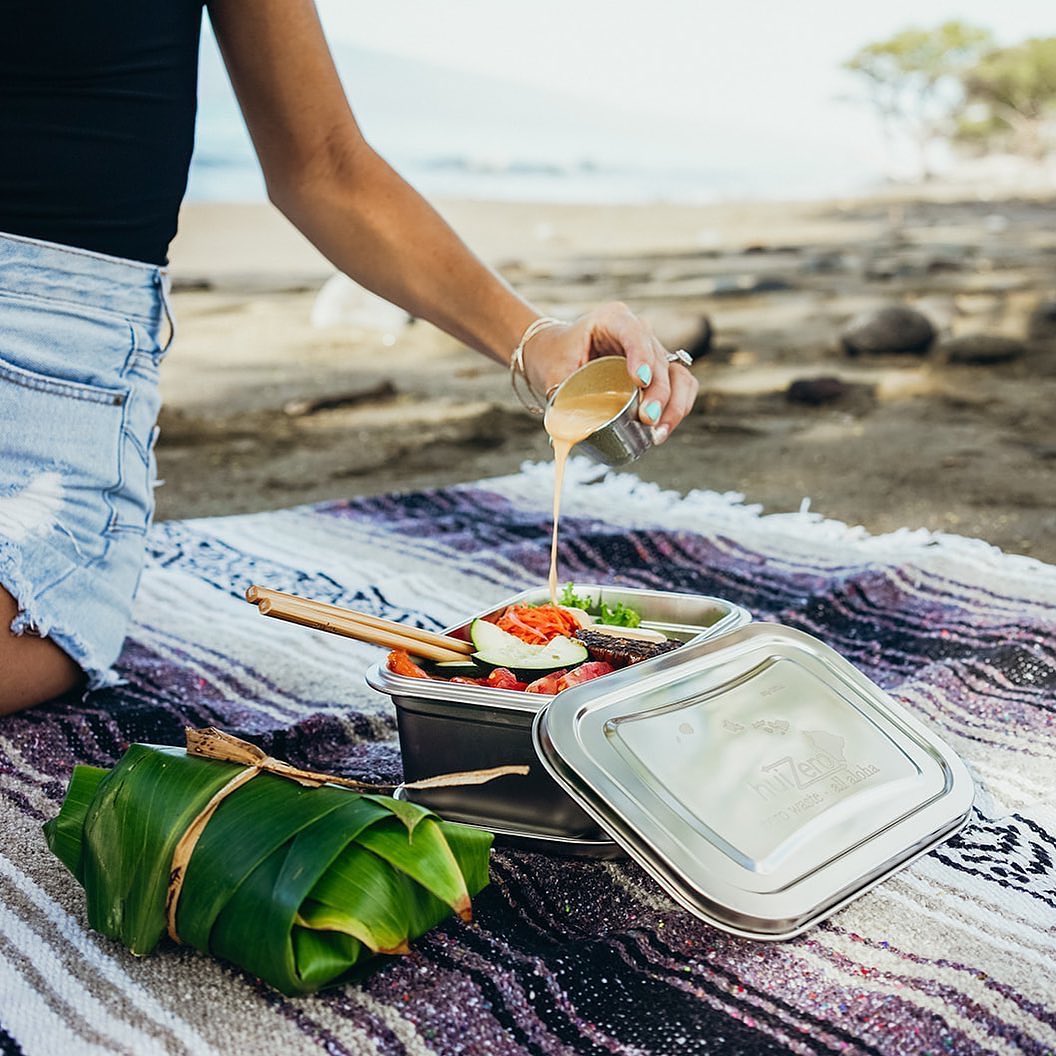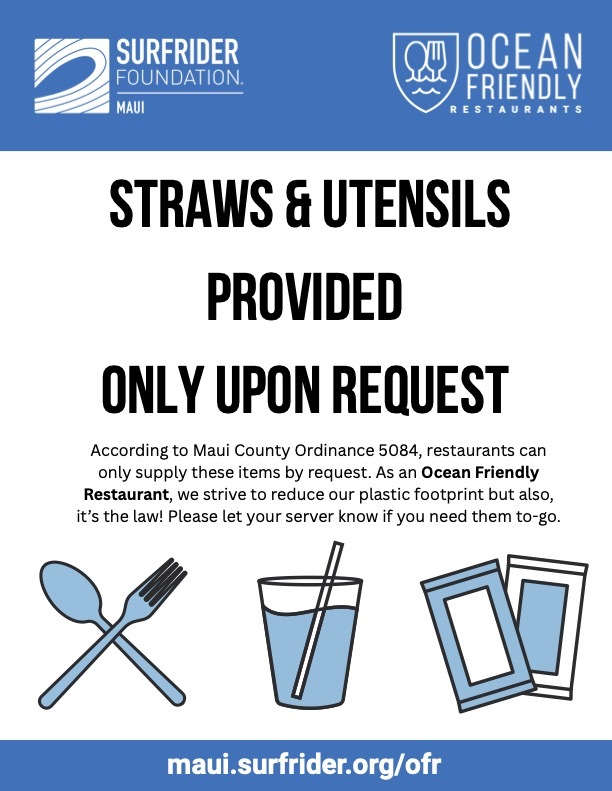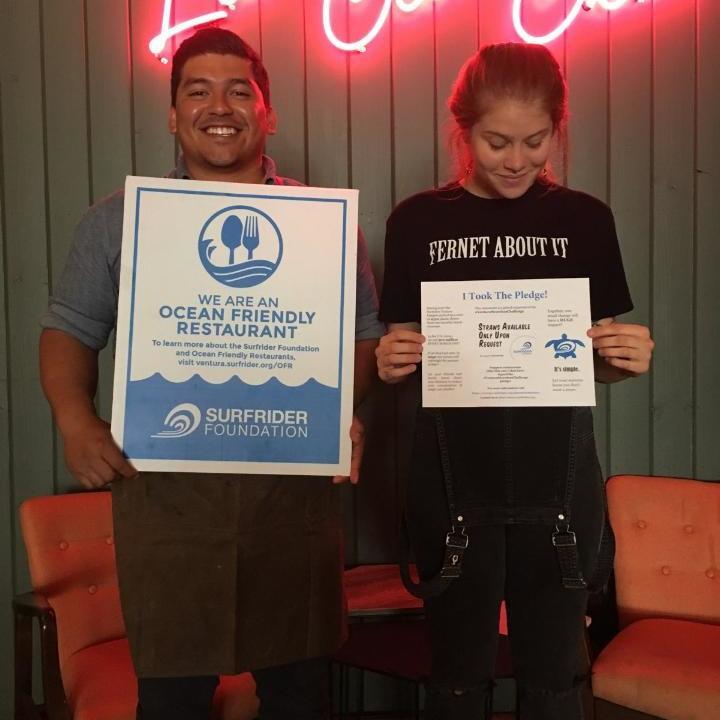
Ocean Friendly Restaurants
Stop Pollution At The Source
Plastic pollution is suffocating our ocean and the many animals that call it home. Researchers estimate there are now over 5.25 trillion pieces of plastic in the ocean with the number continuing to grow every day. This pollution is impacting our marine ecosystems, wildlife such as seabirds, dolphins, fish, and turtles, and plastic fragments are even displacing plankton at the base of the food chain. So what’s the best way to combat this global epidemic facing our ocean? It’s simple: we need to stop the problem at its source! The Surfrider Foundation’s Ocean Friendly Restaurants program does just that. One restaurant, one customer at a time, increases awareness, drives change in behavior and ultimately creates scalable impact to reduce our plastic (and water!) footprint.
We welcome any and all those interested in being part of our fun team of volunteers as we work with restaurants on Maui to eliminate plastic waste. Please email our Ocean Friendly Restaurant Coordinator at ofr@maui.surfrider.org.
Dine at an Ocean Friendly Restaurant on Maui
{{ errorMessage }}
menu Menu
Quickly browse the list for Ocean Friendly Restaurants in your neighborhood:
{{ city }}
- {{ ofr.ocean_friendly_business_name }} {{ ofr.ocean_friendly_business_name }}

About The Program
Ocean Friendly Restaurants first launched in 2013 with Surfrider's Huntington Beach chapter. The program quickly expanded throughout Southern California and Hawaii, becoming a nationally recognized program in 2018. We're building an inclusive community of eco-conscious restaurants, activists, and patrons that support a healthy lifestyle for ourselves and our planet in order to find more joy and peace in our everyday lives. We hope you will join us!
Interested in becoming an Ocean Friendly Restaurant?
The Ocean Friendly Restaurants program recognizes restaurants that are committed to making sustainable choices for our ocean so that people can dine with peace of mind.
How To Participate
Mandatory Criteria (All 7 Required):
- Only reusable foodware is used for onsite dining.*
- Paper straws are provided only upon request.**
- No expanded polystyrene use (aka Styrofoam).
- No plastic bags are used for takeout or to-go orders.
- Single-use utensils, straws, condiments, and other accessory items are provided only upon request.
- Beverages are not sold in plastic bottles.
- Proper recycling practices are followed.
* Foodware includes dinnerware, drinkware, silverware, and ramekins/containers.
** Exceptions may be made for naturally occurring materials (e.g. hay, bamboo) and reusables (e.g. metal, glass), not including bio-based plastic. Straws should be provided to anyone who needs one, including people with disabilities. Read more here.
Check out our Quick Guide for more tips to meet each of the criteria.
Review our Ocean Friendly Foodware Guide to learn about greenwashing, product alternatives, and creative ways to implement more reusables.
Optional Criteria (Choose At Least 3):
- A discount is offered for customers with a reusable item (e.g. cup, container, bag).
- Vegetarian and vegan food options are offered on a regular basis.
- All seafood is ‘Best Choice’ or ‘Good Alternative’ as defined by Seafood Watch, or no seafood is served.*
- Water conservation and pollution mitigation efforts are implemented.**
- Energy efficiency efforts are in place.***
- Concessions and pre-packaged food items are not sold in plastic packaging.
- Composting efforts are in place for food waste.
- Neither single-use plastic nor bio-based plastic containers are used for takeout or to-go orders, reusable containers are preferred.
* Locally sourced, sustainable seafood is preferred and should be prioritized when Seafood Watch recommendations do not apply.
** Examples include installing low-flow faucets and toilets, offering drinking water upon request only, no hosing down outside to reduce urban runoff, proper disposal of FOG, and up-to-date septic or sewage to prevent wastewater pollution.
*** Examples include switching to LED lighting, installing solar panels, using Energy Star certified appliances and/or other efforts to use less energy.

Protect our Ocean, Uphold Maui's Upon Request Law
- On March 1 2022, Maui County Ordinance 5084 went into effect, banning single-use plastic in food service establishments. It restricts the sale and use of disposable plastic items like food containers, cups, forks, spoons, knives, and straws.
- Food service establishments must also follow an “upon request” practice with all disposable utensils and straws. They can only provide these items if a customer requests them.
- Food service establishments cannot supply take-out accessories in every order automatically. Staff are allowed to ask customers if these items are needed, and businesses are allowed to set up a “self serve” station for customers to help themselves.
Restaurant Benefits
- Ocean Friendly Restaurants marketing collateral including window stickers, brochures, and bill inserts to promote your membership to customers.
- Use of Ocean Friendly Restaurants logos for restaurant menu, website and other restaurant marketing materials.
- Restaurant listed on Surfrider national and chapter websites.
- Restaurant included in Ocean Friendly Restaurants national map on Surfrider national and chapter websites.
- Launch parties and collaborative promotions with your nearest Surfrider chapter.
- Access to national vendor discounts on sustainable restaurant and to-go products.
- Tax-deductible donation opportunity.
- Association with a nationally recognized nonprofit with thousands of members and supporters working hard to keep our ocean healthy and protected!

